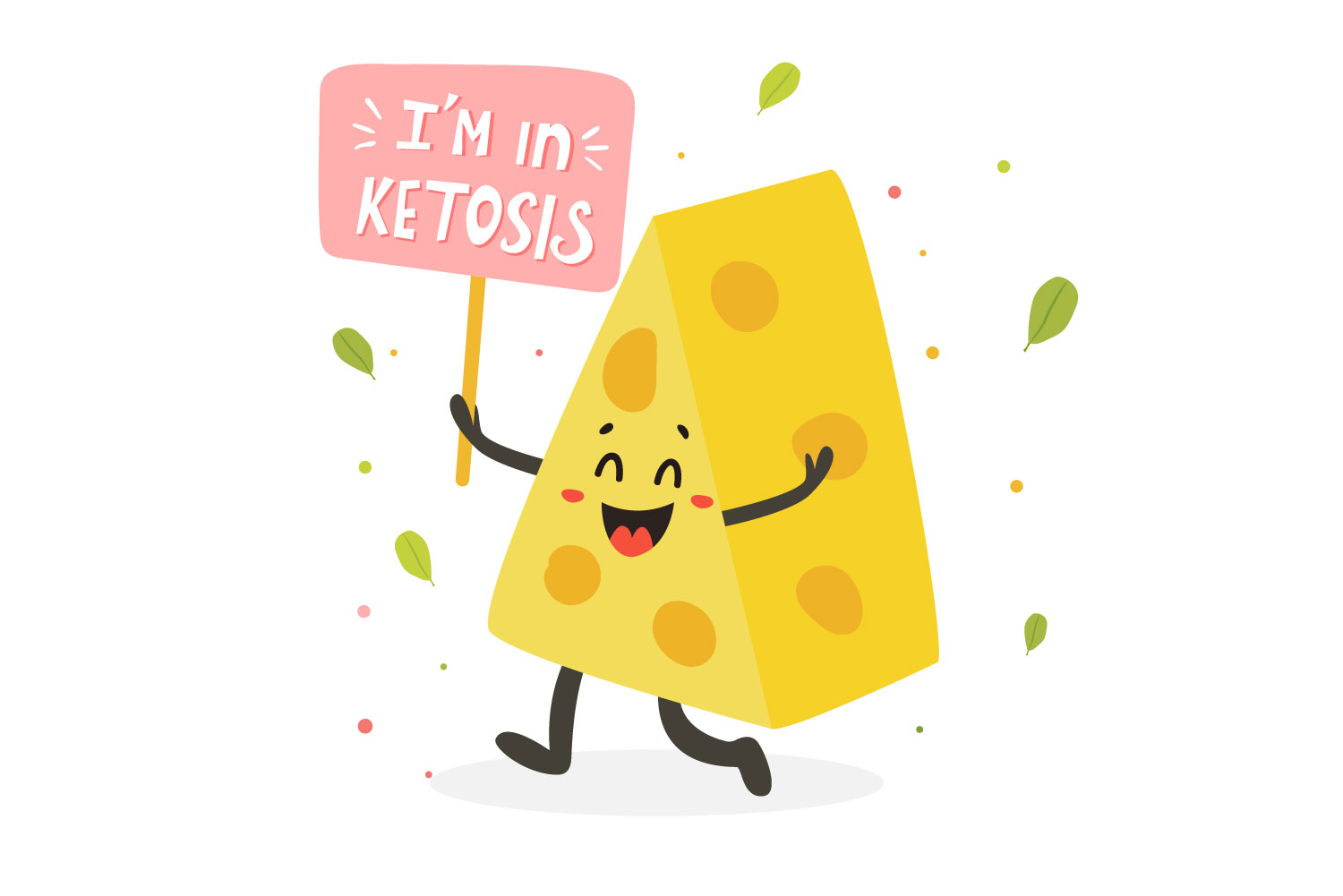SUMMARY
Vitamin D benefits your well-being in numerous ways. It can help keep your heart free of disease, and it’s been associated with improved health outcomes for those hospitalized with COVID-19.
Achieving good health is similar to solving a jigsaw puzzle.
If just one piece is missing, you aren’t likely to get the desired result.
For many people, vitamin D may very well be the missing puzzle piece in their quest for vibrant, radiant health.
Vitamin D is known as the sunshine vitamin, largely because it’s produced by our skin when we’re out in the sun. It’s used by the body in a wide range of vital functions, and it plays a key role in helping us achieve optimum health.
So, how exactly can vitamin D improve your health and wellness?
In this article, we will:
- Explain what vitamin D is, and describe the role it plays in the body
- List three ways of getting vitamin D
- Discuss factors that can increase your risk of vitamin D deficiency
- Let you know how much of this essential nutrient you need each day
- List vitamin D benefits that can supercharge your health
What is vitamin D, and what role does it play in the body?

Vitamin D is a fat-soluble vitamin that’s also known as calciferol. It’s naturally present in certain foods, and it’s also available as a dietary supplement.
This nutrient plays a key role in helping the body to absorb calcium. Calcium is critical for healthy bones. Without proper vitamin D, our bones can become soft, thin and brittle.
In children, this condition is known as rickets. If it occurs in adulthood, it’s called osteomalacia. When used in conjunction with calcium, vitamin D can help protect older adults against osteoporosis and help ensure healthy bone density.
Vitamin D gets a lot of press for its relationship to bone health, but it does a lot more than just support strong bones. Here are some of the other ways in which it facilitates good health:
- Vitamin D helps your body’s muscles move and function effectively.
- Your nerves rely on vitamin D to help carry messages from the brain to all your various body parts.
- Finally, vitamin D provides robust support to the immune system, assisting it in the battle against invading viruses and bacteria.
How to get vitamin D
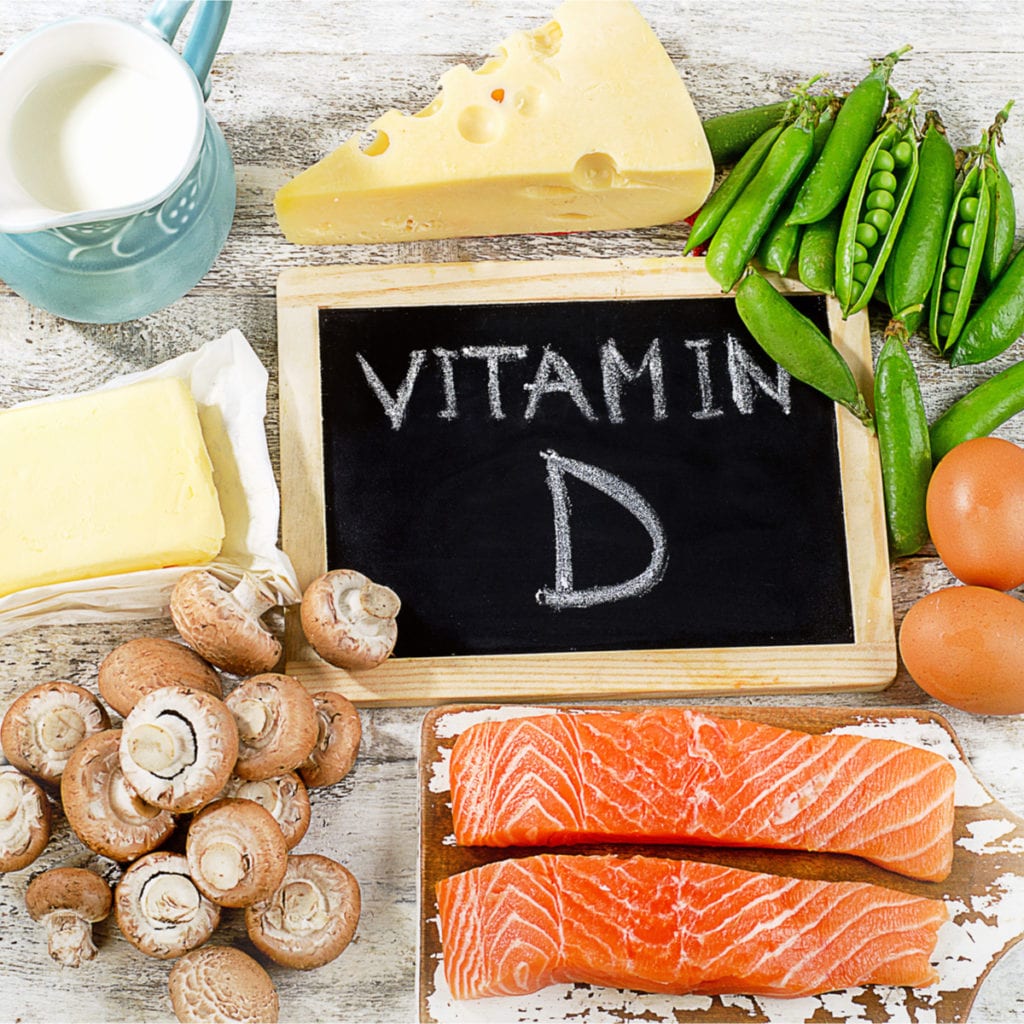
Now that we understand the role vitamin D plays in our well-being, it’s time to take a look at some of the ways in which we can add more of this nutrient to our bodies.
There are three main ways of getting vitamin D: via sunlight, food and supplements.
1. Sunlight

The body produces vitamin D when your skin is exposed to the sun. Most of us get at least a part of our daily requirement via sun exposure.
It’s important to know that you need to be outdoors for vitamin D to be produced in this way. You won’t reap vitamin D benefits by basking in sunshine that comes into your living room through a window. According to the National Institutes of Health (NIH), skin that’s exposed to sunshine via a window while indoors won’t produce vitamin D.
Also, cloudiness plays a role in how much vitamin D your body produces during sun exposure. You’ll produce less vitamin D on a cloudy day than you will on a day with clear skies and bright sunshine.
And while shade can give you a break from the sun’s brightness and heat, it’s no friend when it comes to vitamin D production. Your body will generate less vitamin D in the shade than it will in direct sunshine.
Finally, fair-skinned people tend to make more vitamin D during sun exposure than those with darker complexions. That means that if you have a darker skin tone, you’ll want to be extra careful about making sure you get enough vitamin D from a variety of sources.
2. Food

You can ramp up your vitamin D level by consuming certain foods. Some foods are naturally rich in vitamin D. Other foods have their vitamin D profile enhanced during processing.
Natural food sources
The list of foods that are naturally rich in vitamin D is shorter than you might think:
- Fatty fish: You can find this nutrient in fatty fish. Salmon is an example of an oily fish that is a good source of vitamin D. Tuna and mackerel also contain lots of this vitamin.
- Beef liver, cheese and egg yolks: There’s a small amount of vitamin D present in beef liver. You’ll also find small amounts of this nutrient in cheese and egg yolks.
- Mushrooms: Last but not least, mushrooms can help raise your vitamin D level. Most mushrooms contain some vitamin D. However, some are grown in an environment that boosts their content of this nutrient; this is achieved by exposing the mushrooms to ultraviolet light. These mushrooms are labeled as being especially high in vitamin D, and they’re available online and is some health food stores.
Fortified food sources
Many foods are fortified to enhance their vitamin D content:
- Dairy milk: Most of the U.S milk supply is fortified with 400 IU of vitamin D per quart. This means cow’s milk can serve as a good source of this nutrient. However, know that while vitamin D is added to milk, milk-based foods aren’t similarly fortified. As a result, you aren’t likely to find added vitamin D in foods such as cheese and ice cream.
- Plant-based milk: Plant-based milks such as soy milk, almond milk and oat milk have grown more popular in recent years. These milks are a superior choice to dairy milk for those who can’t tolerate lactose. Also, unlike cow’s milk, they’re free of cholesterol. As a result, they represent a healthier alternative to traditional dairy milk. Much like cow’s milk, plant-based milks are usually fortified with vitamin D. Drinking these beverages can represent a good way of maintaining healthy vitamin D intake.
- Breakfast cereals and orange juice: Some breakfast cereals contain added vitamin D. The same is true for orange juice. Check the labels before you buy to verify that vitamin D has been added.
- Yogurt and margarine: Vitamin D is often added to yogurt products, as well as margarine. Again, it’s important to take a look at food labels to make sure you’re purchasing a product that’s enriched with this nutrient.
3. Supplements
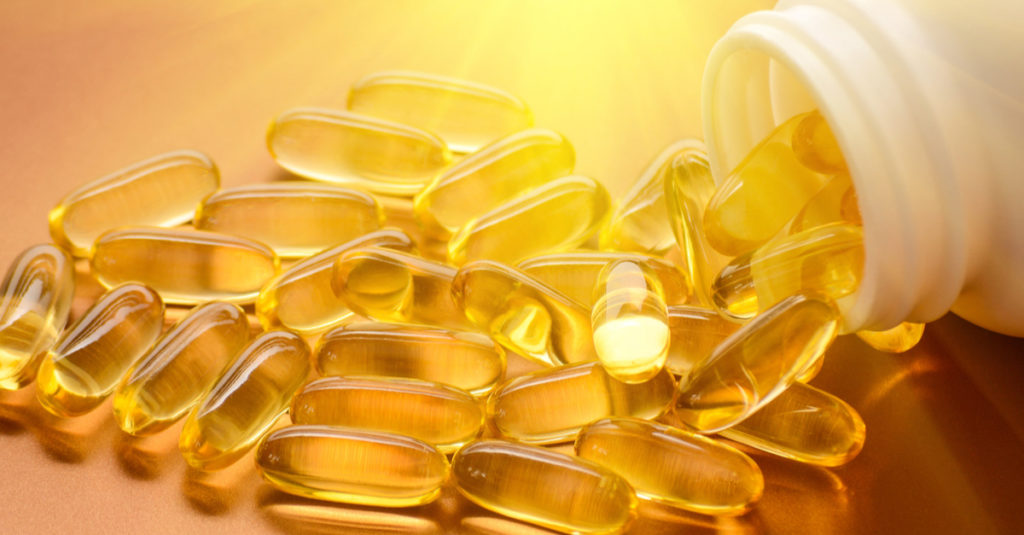
Vitamin D supplementation is perhaps the easiest and most convenient way to bump up your intake of this crucial nutrient.
These supplements come in two main forms:
- Vitamin D2 (ergocalciferol)
- Vitamin D3 (cholecalciferol)
D2 and D3 differ in a way that will be of special interest to vegans. D3 comes from animal sources. Meanwhile, D2 is sourced from plants.
As far as cost goes, D2 is less expensive to produce than D3. As a result, D2 tends to be the type that’s more commonly used in fortified foods.
It’s important to know that D3 seems to create more vitamin D in the body than D2. In one 2012 study, a single dose of D3 was shown to be nearly twice as effective as D2 in raising the body’s vitamin D level.
This doesn’t mean that D2 isn’t a valuable source of this nutrient. If you’d rather avoid food sourced from animals, D2 is a good bet; just know that you may need to take a higher dose of this type of vitamin D supplement to get your levels up to where you want them to be.
Who is at high risk for vitamin D deficiency?

Vitamin D deficiency and insufficiency are common, even among otherwise healthy adults. A recent study in Boston determined that nearly two-thirds of that city’s healthy young adults were vitamin D insufficient.
However, there are certain groups that face a higher-than-normal risk. If you fall within any of these groups, take special care to make sure you’re getting enough of this essential nutrient.
These groups of people have increased risk of vitamin D deficiency and insufficiency:
1. Older adults
The skin makes vitamin D when it’s exposed to sunlight, but it becomes less efficient at doing this as we age. As a result, older people have a harder time than younger people when it comes to creating vitamin D from sunlight.
Also, we rely on our kidneys to convert vitamin D into an active form that can be used throughout the body. As we age, the kidneys become less adept at handling this task.
2. People with dark skin
Relative to fair-skinned people, people with dark skin have less ability to produce vitamin D from the sun.
This is reflected in the numbers when looking at deficiency. According to NIH, by race, non-Hispanic blacks tend to have the lowest levels of vitamin D. Non-Hispanic whites tend to have the highest.
3. People with gastrointestinal conditions such as Crohn’s disease or celiac disease
Disorders such as Crohn’s disease and celiac disease can hinder the body’s ability to properly digest fat. As a fat-soluble nutrient, vitamin D needs fat if it is to be effectively absorbed by the body.
If you have Crohn’s disease or celiac disease, these conditions may hinder fat digestion in ways that can make it hard for your body to get enough vitamin D.
4. Obese people
Body fat can sometimes bind to vitamin D, and this may prevent it from being absorbed into the bloodstream. Obese people have high levels of body fat, and this may hinder vitamin D absorption in ways that leave them deficient.
How much vitamin D do you need each day?

This is a good time to talk about how much vitamin is needed each day for optimum health.
These are the recommendations provided by NIH. The amount required varies based on age:
- Birth to 12 months: 10 mcg (400 IU)
- Kids 1-13 years: 15 mcg (600 IU)
- Teens 14-18 years: 15 mcg (600 IU)
- Adults 19-70 years: 15 mcg (600 IU)
- Adults 71 years and older: 20 mcg (800 IU)
- Pregnant and breastfeeding women: 15 mcg (600 IU)
Vitamin D benefits that can improve your health

Vitamin D supports the body in countless ways. When you consider that fact, it’s not surprising to learn that ensuring adequate vitamin D intake can have a significant effect on your health.
Here are some key vitamin D benefits:
1. May protect against multiple sclerosis
Multiple sclerosis (MS) is an autoimmune disease that affects the brain and the spinal cord. MS causes the body’s immune system to turn against the protective sheath (known as myelin) that shields nerve fibers. This causes a breakdown in communication between the brain and the rest of your body. Ultimately, MS can cause permanent disability and nerve damage.
There is no cure for multiple sclerosis. However, there are treatments available that can help hasten recovery in the wake of an attack.
Research indicates that those with low levels of vitamin D have a higher-than-normal risk of developing MS.
And high levels of vitamin D may be able to help stave off this disease. A 2006 study shows that high circulating levels of vitamin D are associated with a lower risk of MS.
2. May reduce risk of heart disease
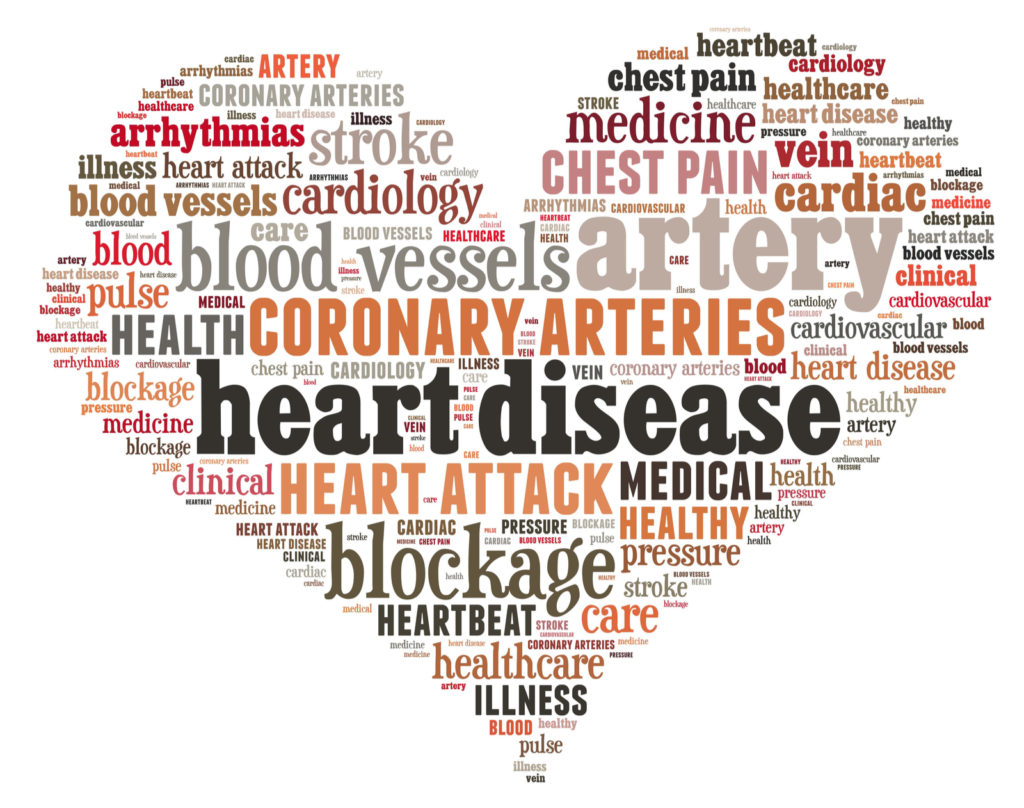
Several studies indicate that vitamin D deficiency is a risk factor in many conditions that are related to heart health. These include heart attacks, peripheral arterial disease, congestive heart failure and strokes. Low vitamin D levels have also been linked with high blood pressure.
This research suggests that there are vitamin D benefits that are linked to heart health. By making sure that you get enough of this nutrient, you can help give your heart the resources it needs to keep disease at bay.
3. May protect against the flu
The flu is a respiratory illness that’s very common and highly contagious. It’s caused by influenza viruses that can potentially infect the throat, nose and lungs. In many cases, the flu results in just a mild illness. However, in some circumstances, it causes health outcomes that can lead to hospitalization or death.
Research shows that vitamin D supplements may be able to help prevent you from coming down with the flu. In a 2009 study involving 167 schoolchildren, vitamin D3 supplementation during the winter was shown to reduce the incidence of influenza.
4. May diminish the severity of COVID-19 symptoms
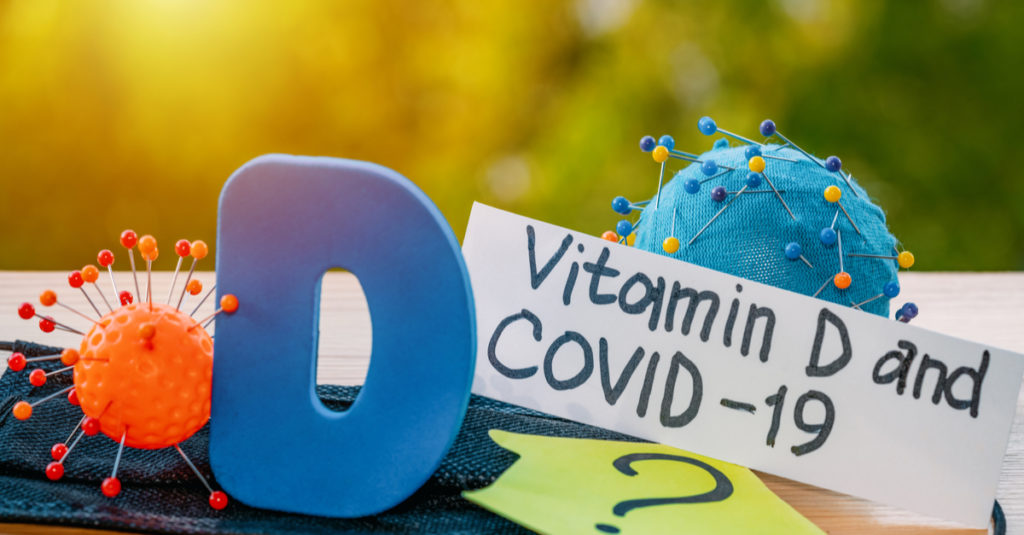
COVID-19 is a virus that affects the respiratory system.
Symptoms can be relatively mild, ranging from a fever to a cough. In some cases, though, symptoms are more severe. This condition can make it hard to breathe; in some patients, this becomes so acute that a ventilator is required. And COVID-19 can be lethal. Though it’s a relatively new virus, it’s already killed hundreds of thousands of people in the U.S. alone.
Some studies show that as many as 80 percent of those hospitalized with COVID-19 symptoms have vitamin D deficiency. And research seems to suggest that vitamin D intake can affect health outcomes.
One Spanish study looked at 76 patients hospitalized with COVID-19 symptoms:
- Of the 50 who received vitamin D, only one required treatment in the intensive care unit (ICU) and none died.
- Of the 26 patients who weren’t treated with vitamin D, 13 required ICU care and two died.
Experts guess that healthy vitamin D levels may help improve COVID-19 outcomes by helping to prevent what’s known as a cytokine storm. This is a condition in which your body’s immune function overreacts in response to illness and begins attacking your cells and tissues.
5. May reduce depression
Depression is a mental health disorder that can suck the joy out of life and leave you in a low mood. Some cases are mild, while others are more severe. Depression can cause changes in sleep patterns, appetite, concentration and energy level, and it may even trigger thoughts of suicide.
It’s estimated that depression affects roughly 17 million American adults in a given year. It’s more prevalent in women than men, and it’s not limited to adults; almost 2 million children within the ages of 3 and 17 have been diagnosed with depression.
There are vitamin D benefits that fight depression. Research indicates that this nutrient may play a critical role in healing the sadness and hopelessness that characterize this condition. In a 2008 study involving 441 participants, a high dose of vitamin D alleviated depressive symptoms.
6. Supports healthy weight loss

Many adults struggle with their weight. According to the Centers for Disease Control and Prevention, a staggering 71.6 percent of American adults age 20 or over are either overweight or obese.
If you want to lose weight, research shows vitamin D supplementation may be able to support you on your journey.
In one study, overweight participants taking a combination of vitamin D and calcium lost more weight than those who took a placebo. Researchers surmised that the additional calcium and vitamin D worked to suppress the appetite.
This means that vitamin D has the potential to provide vital assistance if you’re working to achieve and maintain a healthy body weight.
Next steps
Now that you know all about the ways in which vitamin D benefits your well-being, it’s time to take action. Integrate more foods that contain this nutrient into your diet. And go online or head to your local health food store to find a high-quality vitamin D supplement.
Fresh N Lean can provide you with organic foods that support you on your health journey. We offer five meal plans that cater to a wide range of diets. Our dishes include foods that are rich in vitamin D, such as cod and salmon. Subscribe today to have our nourishing, chef-prepared cuisine delivered to your door.
Fresh N Lean is the nation’s largest organic meal delivery service. Our tasty, chef-prepared cuisine is always fresh and never frozen, and we offer convenient meal plans like Protein+, Keto, Paleo, Standard Vegan and Mediterranean. Choose Fresh N Lean for affordable nutrition, delivered to your doorstep.

